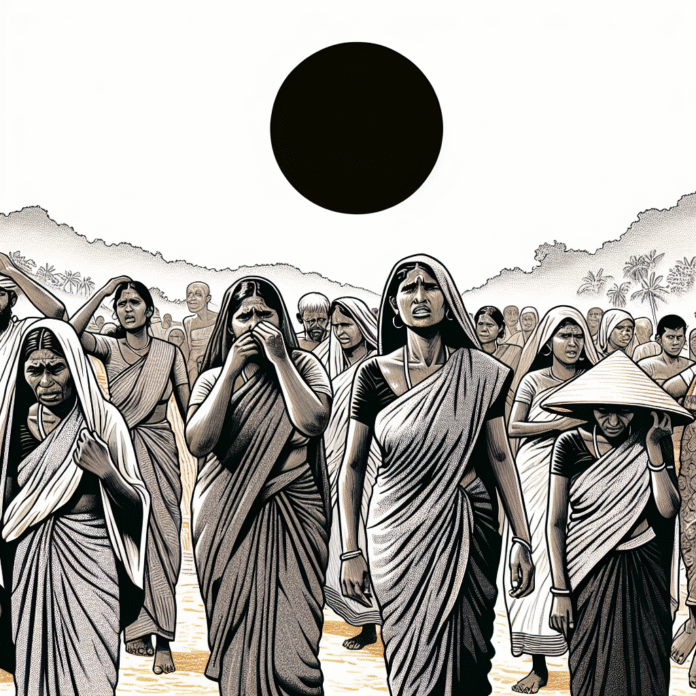Women in Northern Sri Lanka Endure the Heat
Women in Sri Lanka’s North Bear the Heat
The women of Sri Lanka’s Northern region are facing extraordinary challenges amidst rising temperatures and ongoing socio-economic struggles. As climate change intensifies, these women are at the forefront, experiencing the brunt of environmental shifts while simultaneously managing the complexities of their daily lives.
Climate Change and Its Impact
In recent years, Sri Lanka has witnessed a significant increase in temperatures, leading to longer dry spells and erratic weather patterns. The Northern province, which is predominantly agricultural, has been particularly hard-hit. Women, who play a crucial role in farming and household management, are grappling with dwindling water supplies and crop failures. These changes not only threaten their livelihoods but also their families’ food security.
The Role of Women in Agriculture
In many rural areas, women account for a substantial portion of the agricultural workforce. They are responsible for planting, harvesting, and managing family farms. However, traditional gender roles often limit their access to resources such as land, credit, and training. Despite these barriers, women in the North are showing remarkable resilience. Many are adopting innovative agricultural practices, such as intercropping and organic farming, to adapt to the changing climate.
Community Support and Solidarity
Women in these communities are not facing these challenges alone. Local organizations and NGOs are stepping in to provide support through training programs and resources that empower women to adapt to climate change. Initiatives that promote women’s leadership in agriculture are gaining momentum, fostering a sense of solidarity and community among the women.
The Importance of Education
Education plays a vital role in equipping women with the skills needed to combat climate challenges. Programs focused on environmental education and sustainable practices are essential for building resilience. By learning about climate adaptation strategies, women can make informed decisions that enhance their livelihoods and improve their families’ well-being.
Advocacy for Gender Equality
As the effects of climate change continue to escalate, it is crucial to advocate for gender equality in policy-making. The voices of women in the North must be included in discussions about climate action and agricultural policies. By recognizing and addressing the unique challenges faced by women, policymakers can create more effective and inclusive strategies that benefit entire communities.
Conclusion
The women of Sri Lanka’s North are not just survivors; they are leaders and innovators in the face of climate adversity. Their resilience and determination to adapt and thrive in challenging conditions serve as an inspiration. By supporting their efforts and amplifying their voices, we can work towards a more equitable and sustainable future for all.
